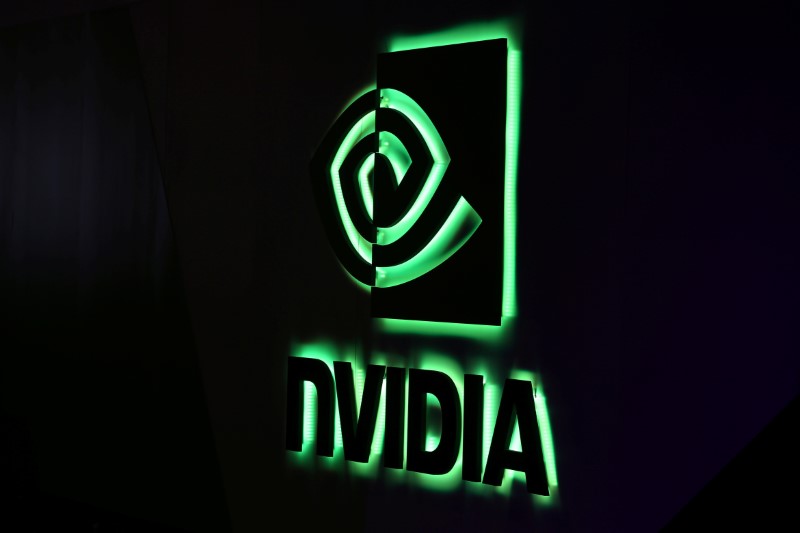In a recent move, Jen-Hsun Huang, the President and CEO of Nvidia Corp (NASDAQ:NVDA), has sold a considerable amount of company stock, totaling over $27 million. The transactions took place over two days, with sales recorded on August 30th and September 3rd, 2024.
The sales were executed at varying prices, ranging from $107.8088 to $121.2909 per share. On August 30th, the CEO sold shares at prices between $117.30 and $121.69, while on September 3rd, the shares were sold at a lower price range, from $107.30 to $116.08. The total value of the sold shares amounted to approximately $27,574,820, reflecting a notable liquidation of Huang's holdings in the semiconductor and related devices company.
It is worth noting that these transactions were conducted under a pre-arranged trading plan, known as a Rule 10b5-1 plan, which was adopted by Huang on March 14, 2024. Such plans allow company insiders to sell shares over a predetermined period of time, providing an affirmative defense against accusations of trading on non-public material information.
Following these transactions, Huang still maintains a significant stake in Nvidia, with direct ownership of shares and additional indirect holdings through various trusts and partnerships. The reported sales have been made public through a Form 4 filing with the Securities and Exchange Commission, which provides transparency on the trades made by company insiders.
Investors and the market often look closely at insider transactions as they can provide insights into the executives' perspectives on the company's future prospects. However, it is also common for insiders to sell shares for reasons that may not necessarily relate to the company's performance, such as personal financial planning or diversification strategies.
Nvidia's stock performance and the implications of Huang's sales will continue to be monitored by investors and analysts alike, as they assess the semiconductor landscape and Nvidia's position within the industry.
In other recent news, Nvidia Corporation (NASDAQ:NVDA) experienced a historic $279 billion market value drop amid a broader market downturn. The company's recent quarterly forecast did not meet high investor expectations, contributing to a significant 9.5% drop in stock value. This development has led to growing investor apprehension regarding the returns on substantial investments in AI.
Additionally, Nvidia is facing a subpoena from the United States Department of Justice (DoJ) as part of an antitrust investigation. The DoJ is examining whether Nvidia is engaging in activities that make it difficult for customers to switch to other suppliers, and whether it penalizes buyers who do not exclusively use its AI chips.
In other recent developments, a significant market downturn led by chip shares has seen Asian indexes and European futures decline. Nick Ferres, CIO at Vantage Point Asset Management, voiced concerns about the potential for a further drawdown due to deteriorating macro conditions and insufficient risk compensation reflected in current equity valuations.
These recent events underscore the market's sensitivity to economic data and sector-specific performance, with technology stocks bearing the brunt of the downturn. Investors are advised by analysts to remain cautious during this period of reassessment for AI companies and the broader tech sector.
InvestingPro Insights
Nvidia Corporation's (NASDAQ:NVDA) recent stock performance and the actions of its CEO, Jen-Hsun Huang, have caught the attention of investors. In light of Huang's significant stock sale, it's important to consider the current financial metrics and analyst insights provided by InvestingPro to gain a deeper understanding of Nvidia's market position and future potential.
InvestingPro Data indicates that Nvidia has a robust market capitalization of $2.61 trillion, reflecting its significant presence in the semiconductor industry. The company's P/E ratio stands at 49.27, suggesting that investors are willing to pay a premium for Nvidia's earnings compared to the broader market. This is further supported by a high Price / Book ratio of 44.8, which often indicates market confidence in a company's growth prospects and asset value.
InvestingPro Tips highlight that Nvidia has a perfect Piotroski Score of 9, which is a strong indicator of the company's financial health. Additionally, analysts are anticipating sales growth in the current year, which may be a factor influencing Huang's decision to sell shares at this time. With 29 analysts having revised their earnings estimates upwards for the upcoming period, the market sentiment towards Nvidia appears positive.
For investors seeking more detailed analysis, there are additional InvestingPro Tips available at https://www.investing.com/pro/NVDA. These tips provide further insights into Nvidia's financial performance, including its impressive gross profit margins and the company's status as a prominent player in the Semiconductors & Semiconductor Equipment industry.
As the semiconductor landscape evolves, Nvidia's strong financials and positive analyst outlook suggest a company that is well-positioned for future growth. Investors will undoubtedly continue to monitor Nvidia's stock performance, especially in the wake of insider transactions such as those carried out by CEO Jen-Hsun Huang.
This article was generated with the support of AI and reviewed by an editor. For more information see our T&C.
